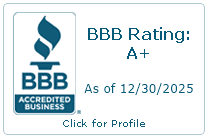Buying a Home With a Well? Here’s What You Need To Know!
In today’s day and age, it’s easy to take for granted how important clean water is to daily life. From brewing your Monday morning coffee to your end-of-the-week stress relief bubble bath, water plays a major role in our health and wellness. If you have always lived within municipal water systems, buying a home with a water well system can feel intimidating. However, if you understand how wells work, if you ask the right questions about the house you’re purchasing, and if you know how to treat the water well once in the home, we know you’ll be fine. Here are a few items to consider when buying a home with a private water well.
Well Production
One of the first things to consider when purchasing a home with a private water well is the gallons per minute (GPM). The minimum water supply capacity for use inside a home should be at least 600 gallons within a two-hour period or about 5 gallons per minute for 2 hours. While all this math might be more than you want to deal with, a licensed well service company can figure it out for you and make sure the well produces enough water for your family’s needs. Also—if the water well production is above 10 GPM and is at least 100 feet deep—a constant pressure pump system is a great choice. Grundfos constant pressure systems actually adapt to fluctuations in water pressure and automatically adjust your water well pump so that water pressure remains constant. For example, you can take a shower and run a load of laundry at the same time without losing water pressure at either point. Regardless of the pump system at your house, you’ll want to make sure the well produces enough for your needs.
Water Quality
Another consideration—and maybe the most important one—is the quality of the water being pumped into your home. Private wells are a great asset, but the water quality must be monitored for bacteria, sediment, and hardness materials.
Bacteria such as e.coli, coliform, cryptosporidium, and other fecal type bacteria can be present in your water, and you definitely don’t want to be drinking any of that.
Are gunk and sediment being pumped into the home? This gunk will clog your water well screen and wear out your water well system components prematurely. You will also want to have the hardness tested to make sure iron, calcium, and magnesium aren’t in your water. These are hardness minerals that cause staining on your showers, tubs, faucets, fixtures, and sinks, as well as reduce the life of your water-using appliances. Before purchasing a home with a private water well, you will want to have the water tested by certified water quality technicians.
Age of Well and System Components
These are all questions you should ask before buying a home with a private water well.
- How deep is the well and when was it drilled?
- You will also need to find out the age of the components in your water well system.
- Is the pump keeping up with demand?
- Has the pressure tank been replaced in the last ten years?
- Are there any leaks in the water lines?
- Is there corrosion on the pressure switch?
- Does your wellhead have a cap on it to prevents bugs, rodents, and other foreign objects from contaminating your well and polluting your water source?

Last Inspection & Well Cleaning
A water well inspection and cleaning are vital to maintaining proper water well health. A water well inspection from C&J evaluates water flow, checks the air in your pressure tank, analyzes your pressure switch, examines for any leaks in your piping, tests the amps and ohms to your water well pump—all the components mentioned above. We even send a sample of your water to an independent laboratory for bacteria testing. This inspection is recommended every year, like changing the batteries in your smoke detectors or an HVAC inspection. If the previous homeowners don’t know when the last inspection was, you should insist on one.
During a water well cleaning, your submersible pump is removed out of the well, and a high-output air line is lowered into the well. This airlifts years of built-up sediment and gunk out of the top of the well. A well cleaning freshens up your old well and redevelops the well screen so you get better flow and better quality water. This is recommended every ten years. Again, if the previous homeowner doesn’t know when their last one was, you should get one.
Other Treatment Equipment
Furthermore, if the house has other treatment equipment, you’ll want to know its age and condition. Have the sediment and iron filters been changed regularly? Does the water have a bad taste or odor? Is there a reverse osmosis drinking water system, and if so, when was the last filter and membrane change? How old is the water softener? Does the home have a UV light installed to mitigate bacteria, and how old is the UV bulb? These are important considerations for making sure the water in your home is healthy. Make sure your family has the right water treatment solutions.
Buying a new house can be an exciting, yet daunting experience. If you are on a private water well, the experts at C&J Well Co can help you through this process and make sure your water is safe and healthy.
Contact us today and get the water well experts on your side!










